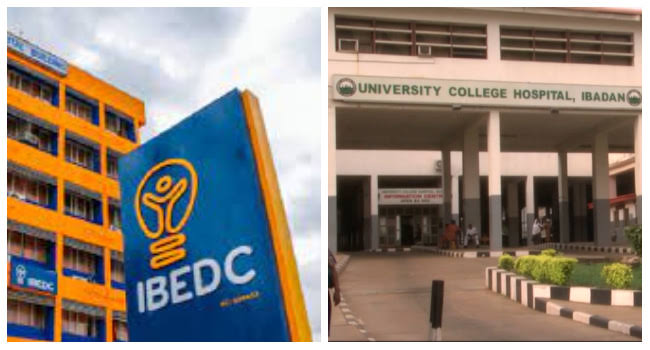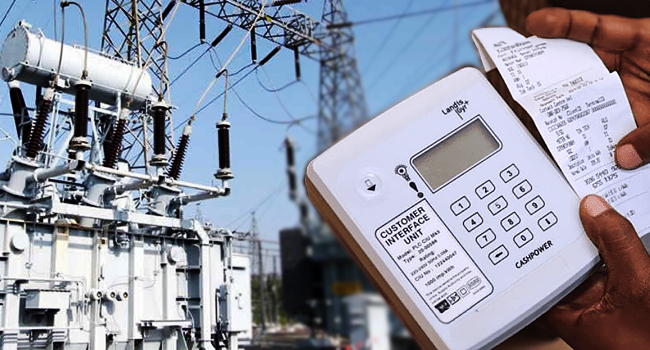PAG Felicitates Muslims on Commencement of Ramadan Fast
February 18, 2026TOP TEN MUSLIM UNIVERSITIES IN AFRICA
February 14, 2026ANALYSIS: Why Nigeria GDP is not the best in Africa Despite having the largest market
February 10, 2026Special Report On UCH Owing IBEDC Huge Debts Despite N619m Power Allocation In Last 4 Years
Special Report On UCH Owing IBEDC Huge Debts Despite N619m Power Allocation In Last 4 Years

The University College Hospital (UCH), Ibadan, Oyo State, was disconnected by the Ibadan Power Distribution Company (IBEDC) due to a power bill of approximately N495 million. INTEGRITY NEWS has found that the hospital’s electricity supply was allocated more than N613 million in the national budgets between 2020 and 2024.
While the hospital is in darkness, staff, patients and students bear the brunt.
It was found in signed budget documents that the federal government annually allocates money to the UCH for electricity charges. Between 2020 and 2024, UCH got N613,405,730 for electricity.
In the 2020 and 2021 Nigerian budgets, N134,701,272 and N144,701,272 were allocated to UCH for electricity charges, respectively.
The figure remained N144,701,272 in the 2022 budget, but in the 2023 budget, the allocation increased to N171,301,914. In the 2024 budget, it increased to N180,000,000, the highest in four years.
The management of UCH cannot answer why, despite these yearly allocations, the hospital owes IBEDC millions, but a representative confirmed the debt to our correspondent.
INTEGRITY NEWS found conflicting reports about how much debt UCH owes IBEDC. When FIJ contacted a staff of the IBEDC office in Dugbe, he said that UCH owed the electricity disco N495 million, but when FIJ contacted Funmi Adetuyibi, she gave a different figure.
Adetuyibi denied that the hospital accumulated a bill of N495 million in three years.
“It is not true that the hospital has an accumulated bill of N495 million over the last three years. The outstanding bill at the assumption of office was N241 million, and the payment plan for defraying the outstanding and payment of current bills was maintained until the tariff was arbitrarily increased,” said Adetuyibi.
She also said that the hospital had received a bill of N147 million this year and paid N50 million in January and N55 million in February. She said N45 million was spent in March on offsetting the bill.
Adetuyibi added that a payment plan on offsetting the outstanding debt backlog was forwarded to IBEDC but was rejected.
“IBEDC rejected this payment plan, and they insisted on an immediate payment of N250 million. We have appealed to IBEDC on several occasions not to charge UCH on commercial rates because we render social services, but our appeals have not had the ears of the company,” Adetuyibi told INTEGRITY NEWS.
A medical doctor at UCH, who spoke with our correspondent via phone interview as an anonymous source, said that darkness was becoming the norm at UCH. He also said that the hospital has experienced four prolonged power outages this year alone. It has been almost two weeks since the UCH last had a stable power supply.
“The power supply at UCH is erratic most of the time, and even totally out at the moment due to issues of debt between the UCH management and IBEDC,” said the doctor.
“You can imagine me clerking a patient in total darkness and only with the help of the light from my phone.”
When asked if the hospital had an alternative power source, he said the hospital only put on the generator for a few hours for surgeries.
“Power outages are gradually becoming the norm. The patients and their relatives are the ones I pity most. People are getting tired and pissed by the day, but we hope the situation is resolved soon,” the doctor said.
The UCH serves two purposes. It provides medical services while also serving as a tertiary education institution. Babatunde (not real name), a medical student in his final year as an undergraduate, told our correspondent that the prolonged power outage affects students.
“Many students on this side of the campus depend on electricity to make our meals, and because of the power outage, many students do not cook or eat as much as they used to,” Babatunde told INTEGRITY NEWS.
“If there is no power supply, we won’t be able to cook. People who have money can still go to the cafeteria to buy food, but now that food is expensive, only a few people can afford to eat at the cafeteria.”
In addition, the power outage is affecting students’ academic activities, as they can no longer study as they used to. According to Babatunde, most students have study materials on their mobile devices, and with the power outage, they are unable to charge them.
“We cannot study with our low devices,” said Babatunde.
Many students now rely on vendors in halls of residence, who put on their generators to charge devices, and whenever they do so, students go out in large numbers to charge their mobile devices.
Babatunde told INTEGRITY NEWS that this is inconvenient but students just have to do it to survive.
Sanusi Abdullahi Oyelekan reporting for INTEGRITY NEWS.
END.











